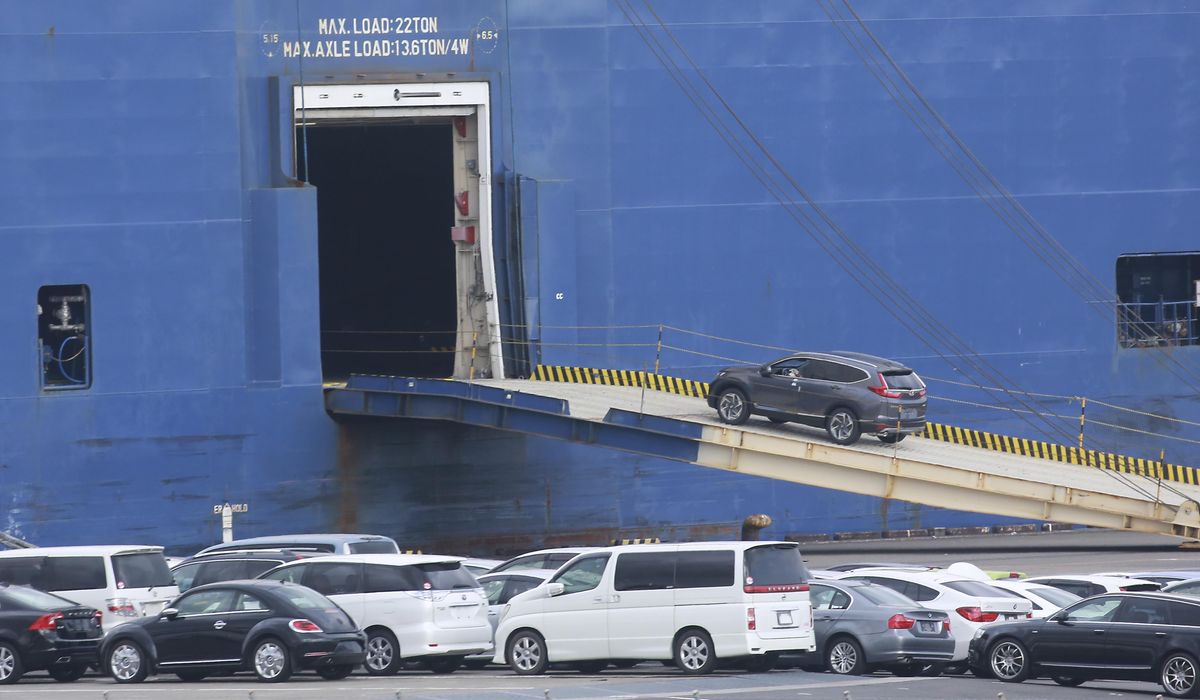


Japan’s leading trade negotiator said Thursday that President Trump’s 25% tariff on foreign-made cars is unacceptable, aggressively laying down a marker ahead of a round of U.S.-Japan trade talks in Washington.
Ryosei Akazawa, who oversees economic and fiscal policy, told reporters at the Tokyo airport that auto tariffs are “not something we can accept,” according to Kyodo News.
Mr. Akazawa said Japanese automakers make about 3.3 million vehicles in the U.S. each year, or more than double the 1.37 million cars they export to the U.S.
He said those investments generate money and jobs for the U.S., so he hopes the Trump administration will reconsider the levies as part of broader trade talks between their major economies.
“We have repeatedly explained to the U.S. that Japan’s automobile industry has made an enormous contribution to the U.S. economy, and we intend to keep explaining this clearly and seek understanding,” Mr. Akazawa said. “In any case, we consider the 25% automobile tariff to be unacceptable.”
Tariffs are taxes or duties paid by importers on the goods they bring in from foreign markets.
Mr. Trump says tariffs are a great way to force companies to return to America or keep their operations in the U.S., employ American workers and create revenue to fund domestic programs.
Foreign countries don’t pay the tariffs directly to the U.S. Treasury. In many cases, U.S. companies will pay the levies, and they might pass on at least some of the cost to consumers through higher prices.
Mr. Trump imposed the 25% tariff on auto and auto parts in late March, saying too many countries were exporting cars into the U.S. while refusing to accept American cars within their markets.
The president has been clear about his goal: Make your cars in the U.S., so you don’t have to pay any tariff.
Still, tariffs are a key sticking point for Japan, whose economy relies on car exports from popular brands like Honda, Toyota, Subaru, Nissan, Mazda and Mitsubishi.
Mr. Akazawa is meeting with U.S. negotiators ahead of a July 8 deadline for countries to strike trade deals or face the reimposition of “Liberation Day” tariffs that Mr. Trump announced in early April. Mr. Trump paused the tariffs for 90 days to allow space for negotiations.
Mr. Trump is threatening Japan with a 24% general tariff, but negotiations could change that, or the White House could grant a longer reprieve.
Japanese Prime Minister Shigeru Ishiba was unable to strike a trade deal or get tariff commitments from Mr. Trump during a recent meeting in Canada at the Group of Seven summit.
Mr. Trump’s “Liberation Day” tariff levels were based in large part on trade deficits, or situations in which countries sell plenty of products to the American market but don’t buy nearly as much from U.S. producers.
The Office of the U.S. Trade Representative said the trade deficit with Japan was $68.5 billion in 2024.
Recently, the U.S. Court of International Trade held that Mr. Trump overstepped his authority with sweeping tariffs on other nations. However, an appeals court paused the implementation of that ruling.
• Tom Howell Jr. can be reached at thowell@washingtontimes.com.
